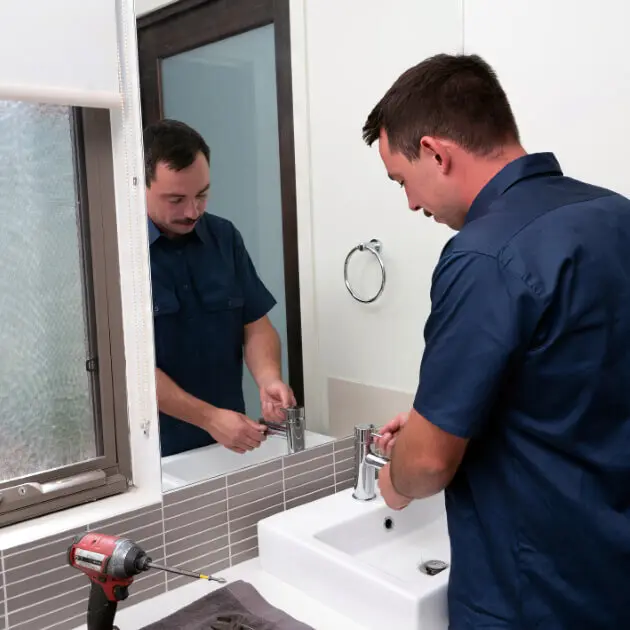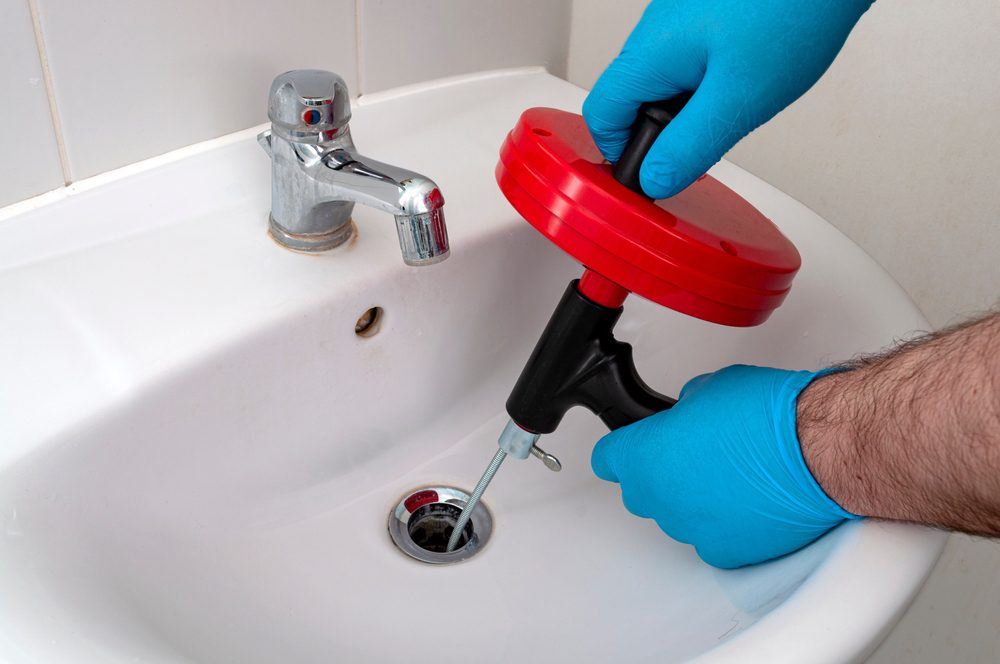Essential Bathroom Plumbing Tips for First-Time Homeowners
Essential Bathroom Plumbing Tips for First-Time Homeowners
Blog Article
We've encountered this article on Smart Plumbing Tips for New Homeowners below on the net and reckoned it made sense to write about it with you here.

For new home owners, understanding and maintaining restroom pipes can conserve both time and money by protecting against expensive concerns down the line. Below are some crucial washroom pipes suggestions to aid you keep every little thing running efficiently.
Acquaint Yourself with the Main Shut-Off Valve
Recognizing where the major water shut-off shutoff is located in your house is crucial. This allows you to rapidly turn off the water in case of significant leakages or throughout plumbing emergency situations, protecting against comprehensive water damage.
Regularly Evaluate for Leakages
Tiny leaks can result in big problems. Routinely check under sinks, around commodes, and near plumbing fixtures for any indicators of leakages. Search for wetness, small drips, or rust. Catching and repairing leakages early can prevent much more major damages and save water.
Don't Disregard Slow Drains Pipes
If your sink or bathtub is draining pipes gradually, it's commonly an indication of a clog forming. Addressing this very early can avoid a full obstruction. Use a bettor or a plumber's serpent to clean out particles. Stay clear of using chemical drainpipe cleansers as they can damage your pipes with time.
Know What Not to Flush
Commodes are not garbage disposals. Stay clear of purging anything apart from toilet paper and human waste. Products like wipes, womanly hygiene items, and cotton bud must be taken care of in the garbage to stop clogs and drain back-ups.
Install Strainers in Drains
Area filters in your sink and bathtub drains pipes to capture hair and other debris before they enter your plumbing system. Cleansing the filters regularly will assist stop accumulation and keep water flowing openly.
Keep Your Hot Water Heater
Ensure your hot water heater is readied to a suitable temperature (generally about 120 degrees Fahrenheit) to prevent scalding and reduce energy usage. Flush the storage tank every year to remove sediment buildup, which can reduce the effectiveness and life expectancy of your heating unit.
Update Your Fixtures
If your home has older components, think about upgrading to much more reliable versions. Modern commodes, showerheads, and taps are developed to utilize much less water while supplying good stress, which can dramatically decrease your water expense and ecological footprint.
Beware with Do It Yourself Plumbing Fixes
While it's alluring to take care of all home repair work by yourself, beware with plumbing. Some concerns could call for specialist expertise, specifically if they involve main water lines or sewer fixings. Hiring an expert can in some cases be more cost-effective than do it yourself, particularly if it stops more damages.
Plan For Cold Weather
Protect your pipes from cold throughout winter by shielding pipes in unheated areas like basements, attic rooms, and garages. Throughout extreme chilly, allow cold water drip from faucets served by revealed pipes to assist protect against freezing.
Arrange Normal Upkeep
Consider scheduling yearly examinations with a certified plumber. They can find issues that you could miss, such as hidden leaks or deterioration on pipelines and fixtures. Routine upkeep assists prolong the life of your plumbing system and can protect against emergency situations.
Conclusion
Comprehending and maintaining your home's bathroom pipes can stop numerous usual issues. By complying with these necessary suggestions, you can guarantee your bathroom remains useful and reliable, saving you money and time in the future.
Essential Plumbing Tips For Every Homeowner
As a homeowner, taking care of your plumbing system is crucial to maintaining the functionality and value of your home. While plumbing issues can be daunting, there are some essential tips that every homeowner should know to prevent major problems and save money in the long run. Here are some key plumbing tips that every homeowner should be aware of.
Regular Maintenance
One of the most important plumbing tips for homeowners is to schedule regular maintenance checks with a professional plumber. By having your pipes, fixtures, and appliances inspected regularly, you can catch any potential issues before they turn into costly repairs. A plumber can also provide valuable advice on how to properly maintain your plumbing system to prevent clogs, leaks, and other common problems.
Know Your Shut-Off Valves
It's essential for homeowners to know where the main shut-off valve is located in case of a plumbing emergency. This valve controls the flow of water into your home and can help prevent flooding in the event of a burst pipe or other serious issues. Additionally, it's important to know where the shut-off valves are for individual fixtures such as sinks, toilets, and washing machines so you can quickly stop the water supply if needed.
Watch What You Flush
Another important plumbing tip for homeowners is to be mindful of what gets flushed down the drains and toilets in your home. Avoid flushing items like paper towels, feminine hygiene products, grease, or hair as these can cause clogs and damage to your pipes. Installing drain filters or screens can help catch debris before it causes a blockage.
Insulate Pipes in Cold Weather
During winter months, it's crucial to insulate any exposed pipes in unheated areas of your home to prevent them from freezing and bursting. Frozen pipes can lead to extensive water damage and costly repairs. By adding insulation or heat tape to vulnerable pipes, you can protect them from extreme temperatures and avoid potential disasters.
Address Leaks Promptly
If you notice any signs of leaks such as damp spots on walls or ceilings, musty odors, or dripping faucets, it's important to address them promptly before they worsen. Even small leaks can lead to mold growth, water damage, and increased water bills over time. Ignoring leaks can result in more extensive repairs down the line.
Taking care of your home's plumbing system is an essential part of being a responsible homeowner. By following these key plumbing tips and staying proactive about maintenance and repairs, you can keep your plumbing system running smoothly and avoid costly issues in the future. Remember that prevention is key when it comes to plumbing problems – investing time and effort now can save you money and headaches later on. Stay informed about your home's plumbing system and don't hesitate to consult with a professional plumber if you have any concerns or questions.

Call Today Report this page